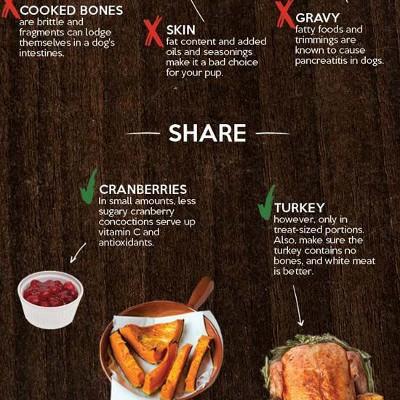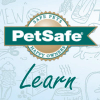Foods that are Safe for Humans can be Toxic to Pets
We are all created differently. While you can adopt a “same food suits all” strategy for your family, the same cannot apply to your pet. Human foods, with their irresistible aroma, work wonders to conquer the animal senses, but they can turn out to be astonishingly “inhuman” upon ingestion. What you eat is not meant for your pets. It’s not that pet owners are unaware of these facts, but people tend to let their guard down around holidays and celebration days. Some incidences of emergencies and sickness are the consequences of blind love and careless pampering while others are the result of a quickly and sneaky pet. Regardless, there are some people-foods that will only cause minor intestinal distress while others can be fatal. Here is a list of foods that can wreak havoc on your pet’s health or prove truly toxic:
- Beer, Wine And Spirits: Alcohol is noted for its negative impacts on the human liver and brain and the effects get amplified for smaller creatures. The effects can be fatal and even a small amount of alcohol can cause damages to your pet’s brain and liver. The smaller the dog, the more serious exposure to alcohol can be.
- Chocolate: sharing a slice of your favorite chocolate with your pet. Stop at this point! Chocolate contains theobromine which can cause irregular heart beats in dogs and cats and this may even lead to death if your pet is in a hyper active mode. Unsweetened baking chocolates are particularly dangerous and allowing your pet to lick the chocolate cake icing is enough to make him fall sick.
- Caffeine: Caffeinated drinks such as tea or coffee are known for their positive effects on human health, if taken moderately. But your Rover or Miss Meow was not made to get these benefits. Caffeinated products may stimulate your pet’s cardiac and central nervous systems causing restlessness, heart palpitations, and even death.
- Avocados: The antioxidants in avocados are selfishly meant to benefit human health!The fruits contain persin, a toxic component that produces adverse effects on the heart, lung, and several other body tissues of cats, dogs, and other animals.
- Grapes and Raisins: Just keep those fruit buns and cakes out of reach of your pets. Grapes and raisins can cause kidney failure in dogs and cats.
- Onions and Garlic: Food recipes earn distinction with the perfect combination of garlic and onions. The impelling smell drives your pets crazy. Sadly, you cannot share your bite of happiness with your pet because onion and garlic are highly toxic to animals. Onions produce a destructive impact on the animal red blood cells causing anemia, breathing troubles, and weakness.
- Candy: Candies bring moments of bitterness for pets. Candies and chewing gums contain a sweetener called Xylitol which triggers a sudden fall of an animal’s blood glucose level while leading to seizures and loss of coordination.
- Nuts: Keep your nut gift hampers safe and secure. Rather, keep your pets safe and away from them. Nuts, particularly walnuts and macadamia nuts, are harmful for animal health. Early symptoms include vomiting, weakness, inability to stand or walk, hyperthermia, and elevated heart beats. The symptoms take a serious turn if your pet consumes nutty chocolates. Such cases are commonly associated with kidney failure and even death.
- Raw Eggs, Raw Meat, and Raw Fish: Raw bones, which are normally considered as a natural food for dogs, may invite choking hazards. Additionally, the broken fragments may also cause damages to the digestive tract. Raw eggs contain bacteria such as Salmonella and E.coli which may affect your pet’s health. Raw eggs contain Avidin, an enzyme that restricts the absorption of biotin causing skin and coat issues in animals. Consumption of raw fish can lead to gastrointestinal upset in cats. Raw fish contains thiaminase which can lead to thiamine deficiency in cats. Symptoms include neurological disorders and convulsions.
- Milk: It’s very surprising, but it’s true. Cats become lactose intolerant with age and this may make them suffer from diarrhea.
- Ham: Imagine a ham preparation complemented with French Fries and salty chips! The perfect filler for a holiday dinner! Perhaps your pets might also think the same way without being aware of what may befall them. Excessive consumption of salty foods may cause undue urination and thirst and may even lead to sodium ion poisoning in pets. Common symptoms include diarrhea, seizures, vomiting, tremors, and depression.
- Yeast Dough: Check out whether your cat has her eyes on your yeast dough. While some naughtiness on her part may require you to make a second-time preparation for your favorite homemade bread, the same may bring disaster to the naughty kid’s health. Bread dough rises before it gets baked and it shows similar reactions inside your cat’s stomach as well. The swelling of the dough causes stretching of the cat’s abdomen and the symptoms show up as severe abdominal pain. Additionally, alcoholic poisoning may also result from alcoholic fermentation.
Keeping pets at home is similar to adding kids in the family. Kids grow up and start taking their own responsibilities, but pets grow older just to make you more responsible. While you try your level best to control your pets’ behavior by specifying some “no-entry” zones for him, there can be no surety that he will remain as the most obedient child every time. A call can save a life and it’s a smart thought to keep the contact numbers of your local vet, the nearest emergency clinic, and the ASPCA Animal Poison Control Center (888) 426-4435- handy so that you can find them whenever you need. You never know when an emergency will strike, but when it does you can be better prepared.




